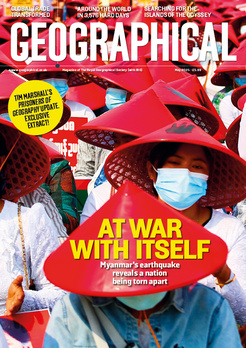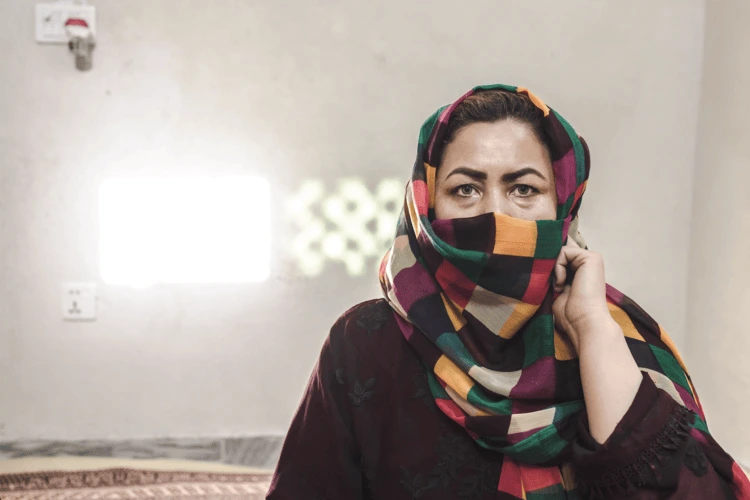
Afghani women fleeing from the Taliban for refuge in Pakistan are facing an uncertain future
Words and photographs Ana Norman-Bernandez
As many as 3.5 million people may have fled Afghanistan and sought refuge from the Taliban in neighbouring Pakistan. Nearly 1.5 million have been granted legal status, while in recent years, around 800,000 have been forced to return. In March, the Pakistani authorities launched a crackdown on the remaining refugees without papers. I met some of the women who fear for the future if they’re expelled…
When the Taliban seized power in 2021, Amina*, her sister Shirin, their mother and their younger brother fled Afghanistan, leaving behind their home, careers and the future they had envisioned. As she handed her passport to the airport official in Kabul, she knew her fate hinged on his response. ‘That was the third time in my life I had felt scared to death,’ Amina says. The first was when the Taliban’s return was announced; the second was when she was arrested and imprisoned for three nights. ‘We had no choice but to leave,’ she says from a cramped apartment in Rawalpindi, Pakistan.
Pakistan, which shares a 2,600-kilometre border with Afghanistan, has long been one of the world’s largest hosts of Afghan refugees. But most Afghans who arrived after 2021 haven’t been granted legal status, and in October 2023, the government launched a mass deportation campaign targeting undocumented Afghans. Since then, more than 800,000 people have been deported or coerced into returning, many fearing Taliban retribution. Women face a particularly bleak reality upon return – the rights they once had in pre- 2021 Afghanistan have largely been erased.
In January 2025, US President Donald Trump issued an executive order suspending the US Refugee Admissions Program for 90 days, directly affecting at least 1,600 Afghans in Pakistan who were waiting to be resettled in the USA. This policy change not only stalls their hopes of finding refuge but also reflects a broader shift in international attitudes towards refugees.
For many Afghans, displacement isn’t a new experience. The country’s history of conflict has led to several waves of refugee emigration since the late 1970s, making it one of the largest refugee-producing countries in the world. When the Taliban first came to power in the 1990s, Amina’s family sought refuge in Iran. Years later, they returned to Afghanistan, hoping for stability, only for her father to be murdered by Taliban militants. Following the 2021 takeover, the family’s political past and their previous involvement with the UN led to Amina’s arrest. Upon her release, the family fled immediately.
Before the Taliban’s return, Amina was a mathematics teacher. Shirin was in her last year of secondary school, planning to study psychology at university. As undocumented refugees in Pakistan, neither could work or study legally. Police raids became frequent and friends were detained or deported. ‘We were not safe in Afghanistan, and we are not safe here,’ says Amina.
Thousands of Afghan women remain in hiding, trapped between the fear of Taliban rule and the daily struggles of life as undocumented refugees. Without legal status in Pakistan, they lack access to essential services, including healthcare, education and formal employment. Many depend on community networks and low-paying, exploitative jobs to survive.
Following the US policy change, the Pakistani government issued a directive ordering all Afghans to vacate Islamabad, the capital, and Rawalpindi, its twin city, by 31 March. Those who fail to comply, according to official documents, will be forcibly repatriated to Afghanistan. The UN has expressed its concern about these developments. ‘We urge Pakistan to continue to provide safety to Afghans at risk, irrespective of their documentation status,’ said Philippa Candler, UNHCR representative in Pakistan, in a statement.
*To safeguard relatives still in Afghanistan, as well as those who may be forced to return there, some names have been changed.
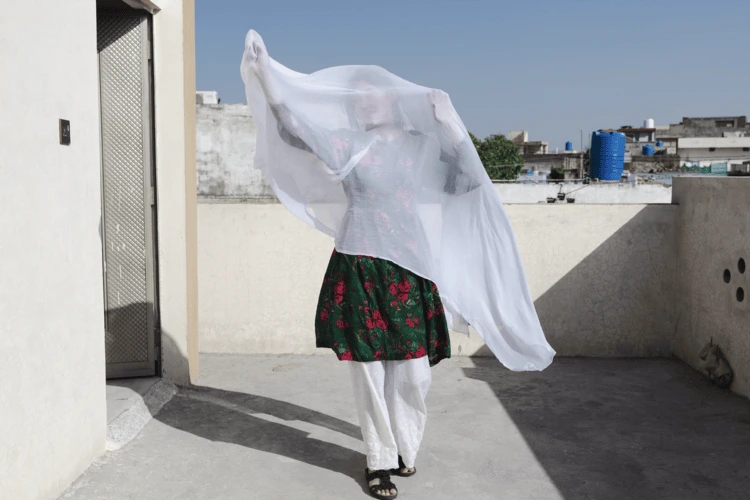
Amina, 28, was working as a maths teacher in Afghanistan when she was arrested by the Taliban. After being released from custody, she escaped the country with the rest of her family.

Amina and her sister Shirin decorated their shared room with uplifting notes. ‘We have no choice but to remain hopeful,’ says Amina.
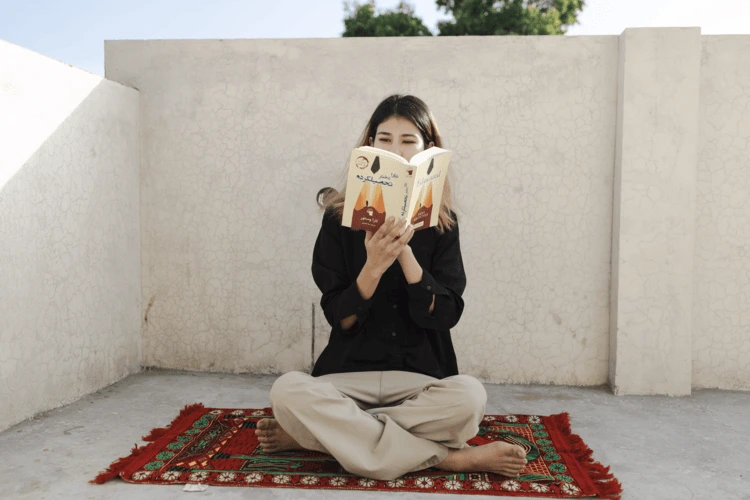
Shirin, Amina’s younger sister, 19, reads on the roof of her house. Shirin had plans to study psychology at university before the family was forced to leave.
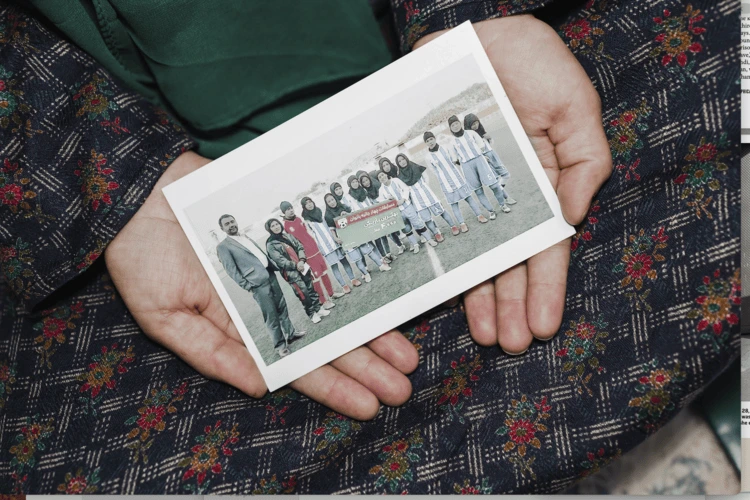
For Yalda, 25, football was more than a hobby, it was her passion and the focus of her career. The Taliban has banned all women’s sports, and Yalda was forced to flee the country. ‘I hope one day I can be free and play football again,’ she says.

Bibi lives in Pakistan with her husband and six children, two of whom have disabilities. ‘We don’t have the money to access treatment,’ she says, ‘but we are safer here than we were in Afghanistan.’
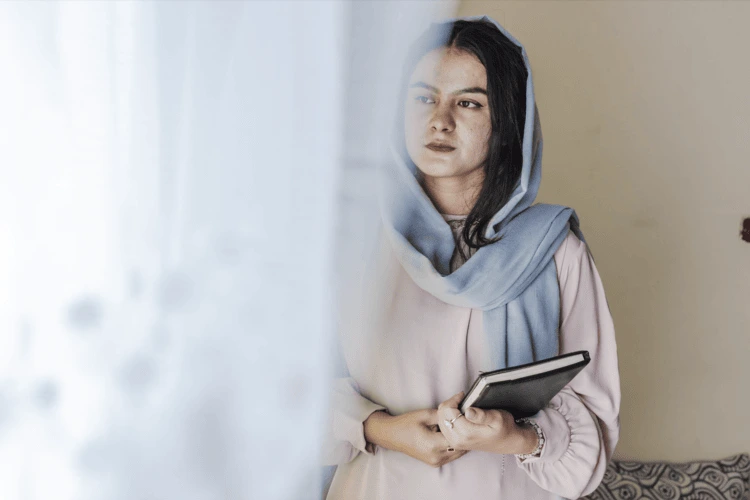
Fazeelat, 20, was accepted into Afghanistan’s top university for dentistry in 2021. The same year, the Taliban government banned women’s access to universities. She decided to escape to Pakistan, where she lives with relatives.
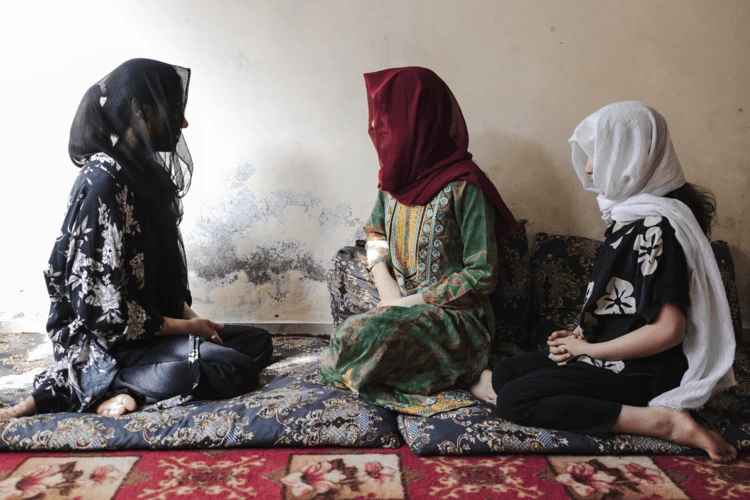
Sisters Nazia, 18, Morsal, 15, and Zahra, 10, left Afghanistan with their parents after facing revenge kidnapping threats from their older sister’s ex-husband. This traditional practice is called baad and still takes place in parts of Afghanistan.

Farzana, 30, was shot in the stomach during an attack on a school. Fearing for her life, she escaped to Pakistan, but the physical and mental scars remain and she has found herself unable to work. ‘After all I’ve been through, how can I go back?’ she asks.

Gul, 37, moved to Pakistan with her six children and husband, whom she married at the age of 15. He beats her regularly. ‘I don’t care what happens to me,’ she says, ‘but what will happen to my daughters?’

Donya, 38, a former policewoman and single mother, fled from Afghanistan because she wanted her daughter to have a chance at education. ‘I just want a bright future for my children with education opportunities. This is my first hope,’ she says.
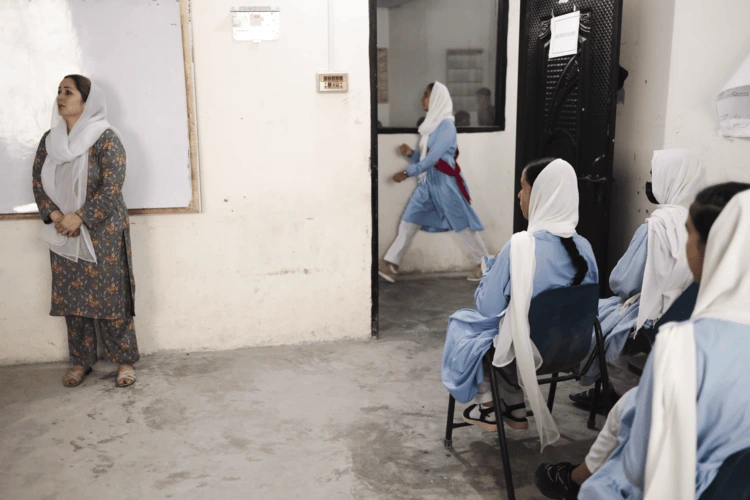
‘Many families have migrated with their daughters for the sake of their education,’ says Salina, director of an Afghan secondary school in Punjab province. ‘In the 1990s, I was a refugee in Iran with my parents. I had the same situation these girls have now… This time, I want to provide refugee children with access to documented education, especially for girls who cannot access education in Afghanistan.’
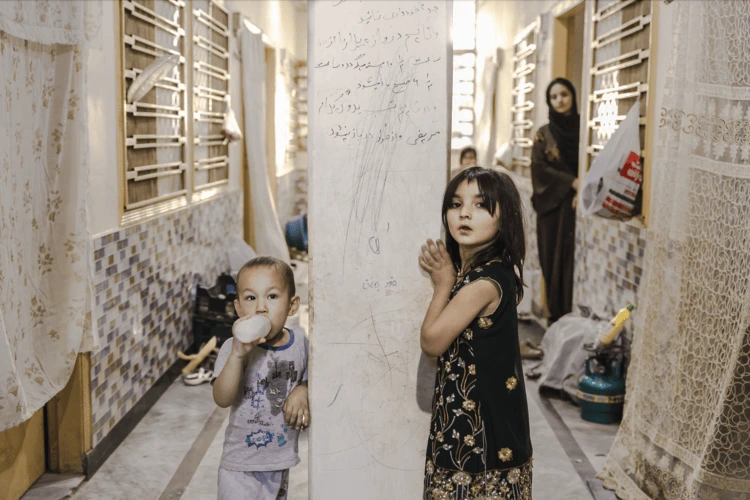
Children stand in the corridors of an apartment block in Rawalpindi that’s home to 37 refugee families. Up to nine people live in every room, each of which measures about three square metres.
After I visited Rawalpindi, Amina and her family were resettled in the USA. They are among the fortunate few, yet every new start is a reminder of all they have lost along the way. ‘I have started my life over four times,’ Amina says. ‘How many times must we start over?’

